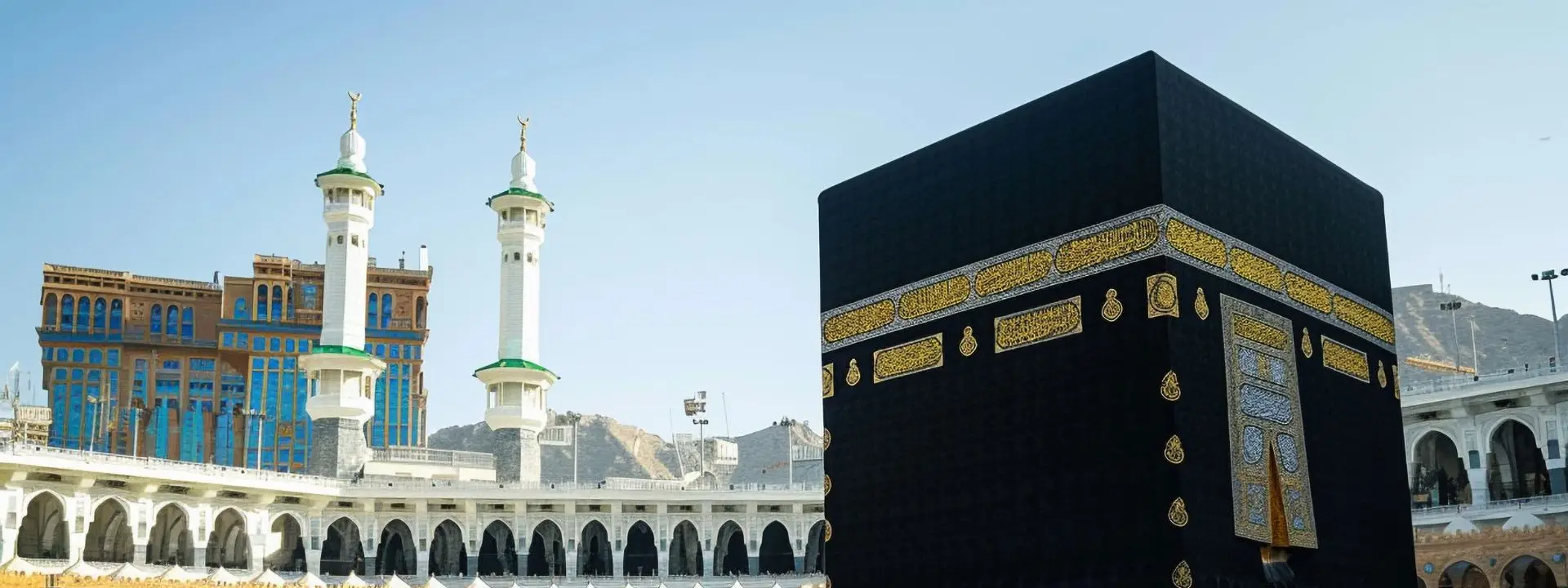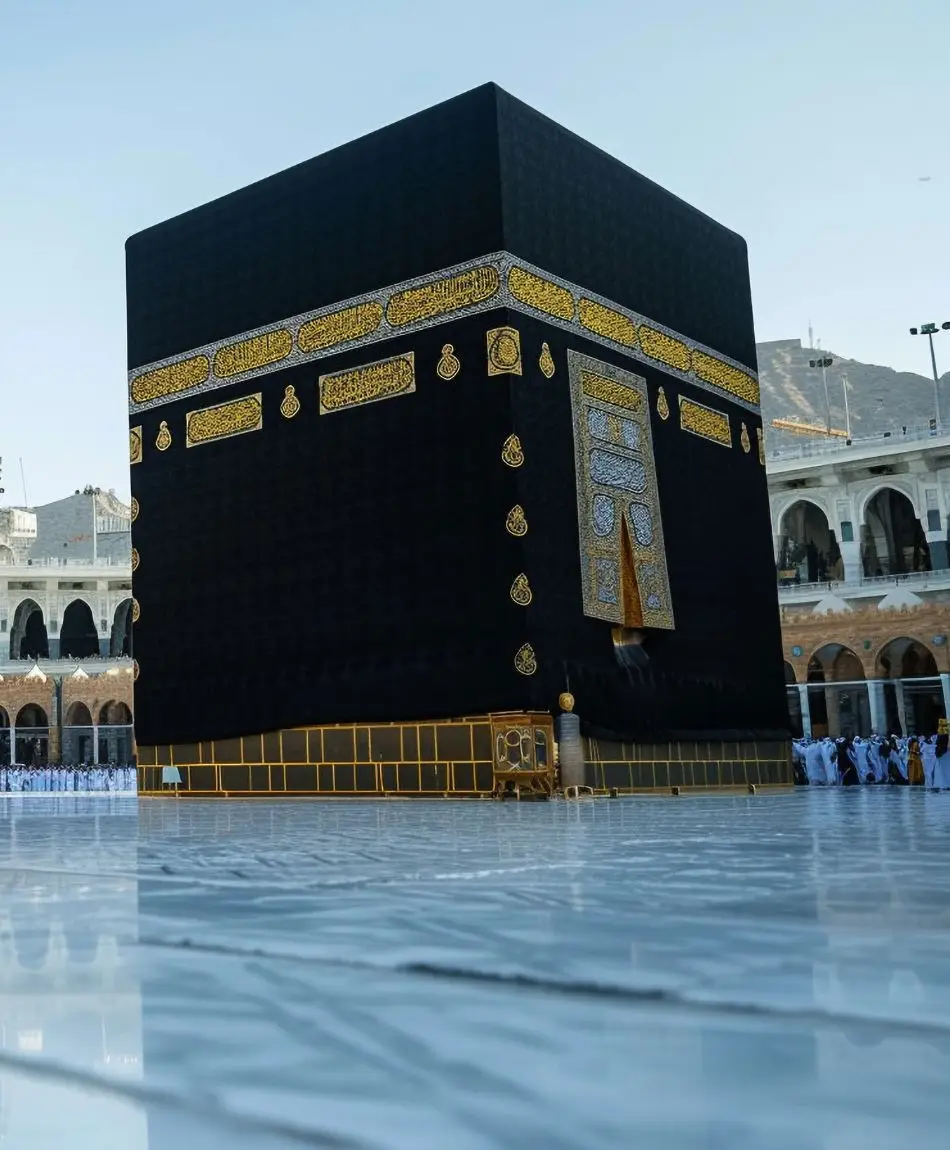What is Hajj? Meaning, Significance, History & Key Facts
Hajj is one of the Five Pillars of Islam holding a deep spiritual significance for Muslims around the world. It is an annual pilgrimage to Makkah, Saudi Arabia, that every Muslim is required to perform at least once in their lifetime, provided they are able to do so. It is that form of worshipping that comprises all the forms of ibadah for Muslims, allowing them to rejuvenate their faith and seek Allah’ forgiveness. For those looking for what is Hajj, here is everything you need to know about it!
Spiritual Significance of Hajj in Islam
The spiritual significance of Hajj in Islam can be analysed with the fact that it represents a deep act of devotion and submission to Allah. It is the best time of the year to strengthen your faith, purify your souls, and seek Allah's forgiveness. For those looking for what is Hajj, it is a sacred journey based on reviving the Sunnah of Hazrat Ibrahim (AS) to reflect on the core values of humility, equality, and unity. Hajj is the opportunity for the Muslims around the world to renew and strengthen their bond to Allah (SWT).
Why do Muslims go on Hajj?
Have you ever wondered why do Muslims go on Hajj?Hajj is one of the five pillars of Islam which unite Muslims from all over the world. Every sane Muslims who is financially and physically eligible to perform Hajj should perform it at least once in their life. It is that powerful journey that cleanses the souls and gives opportunity for self-reflection while earning the pilgrims abundant rewards. It commemorates the devotion and sacrifices of Prophet Ibrahim and his family, reinforcing the values of obedience, patience, and submission to Allah.
Is Hajj Mandatory for all Muslims?
Hajj is not mandatory for all Muslims, but it is obligatory for those who meet specific conditions. It must be performed at least once in a lifetime by every adult Muslim who is physically, mentally, and financially able to go on this sacred journey. The essence of what is Hajj, actually lies in the spirit of devotion to Allah for every Muslim who falls eligible to perform it.
What do Muslims do in Hajj?
If you are looking for what do Muslims do in Hajj, Muslims perform sacred rituals including wearing simple white garments called Ihram, performing tawaf of Ka'aba, doing Sa'i between the hills of Safa and Marwah, standing in prayer at Arafat, and stoning the pillars in Mina. They also offer a sacrifice (Qurbani) and shave or trim their hair as signs of spiritual renewal in remembrance of the trials of Prophet Ibrahim (AS) and his family.
Why is Hajj Important in Islam?
Muslims around the world frequently ask about why is Hajj important in Islam.Hajj is basically the central act of worshipping and is one of the five pillars of Islam. It symbolises the sense of unity, devotion to Allah’s will, sacrifice, and self-reflection.For those looking forwhat is Hajj, it is not only a form of Ibadah, but also a system that highlights Islamic values while bringing one closer to Allah (SWT) and strengthening the bond within Muslim Ummah.
What is the Purpose of Hajj in Islam?
For Muslims, what is the purpose of Hajj in Islam goes beyond worshipping and fulfilling the obligation. It is a spiritual journey of seeking forgiveness, rejuvenating faith, and purifying the souls. It also serves as a reminder that everyone is equal before Allah without any discrimination on the basis of nationality,race, or status.While Muslims also perform acts of worship such as Hajj they also do the essence of sacrifice to honour the legacy of Prophet Ibrahim (AS).
Practical Preparation Guide for Hajj
Hajj is the annual Islamic pilgrimage to Makkah; for those wondering what is Hajj, and what do Muslims do in Hajj, it is a sacred duty and spiritual journey required once in a lifetime for every able Muslim. Here is a general practical preparation guide for Hajj:
- Ensure your passport is valid and obtain a Hajj visa.
- Book international flights and local transportation in Saudi Arabia.
- Consult your doctor for a health check-up and required vaccinations (e.g., meningitis, COVID-19).
- Pack weather-appropriate clothing, including Ihram garments and comfortable shoes.
- Make a sincere intention (niyyah) to perform Hajj.
- Repent and seek forgiveness for past sins.
- Read about Hajj rituals, recite the Qur’an, and engage in dhikr.
- Bring snacks, a refillable water bottle, prescribed medications, and a first-aid kit.
- Learn the steps of Hajj (Ihram, Tawaf, Sa’i, Arafat, Mina, Muzdalifah).
- Memorise key recitations and du’as used during the pilgrimage.
- Stay hydrated and protect yourself from the sun
- Be cautious in crowded areas and follow official instructions.
For detailed information on how to perform the Hajj rituals, read these Hajj Guidelines or download the Hajj Guide.
History of Hajj
The history of Hajj dates back to the time of Prophet Ibrahim (AS), who, along with his son Isma'il, built the Ka'aba in Makkah, Saudi Arabia while expressing his love and devotion towards the Almighty Allah. The Ka'aba is a stone building at the center of the Masjid al-Haram in Makkah. It determines the qibla for Muslims around the world.
People who want to know about what is Hajj and what are the rituals of Hajj signify, it as an act of worshipping which commemorates the trials and devotion of Prophet Ibrahim (AS), his wife Hajar, and their son, including Hajar’s search for water and Ibrahim’s willingness to sacrifice his son in obedience to Allah. Over time, these acts were formalised into the pilgrimage we know today. These events are especially remembered during the sacred month of Dhul Hijjah ,when millions of Muslims also perform Qurbani 2025 to honour the spirit of sacrifice.
Frequently Asked Questions
Hajj takes place from the 8th to the 12th of Dhul-Hijjah, the last month of the Islamic calendar.
The main rituals highlighting the essence of what is Hajj, performed during Hajj include entering the state of Ihram, performing Tawaf (circumambulating the Kaaba), performing Sa'i (walking between Safa and Marwa), standing at Arafat, throwing pebbles at the Jamarat (stoning the devil), and sacrificing an animal.
Yes, it is compulsory to wear Ihram during Hajj. It is a state of spiritual purity and the special attire worn by pilgrims as a symbol of unity and humility before Allah.
Yes, it is permissible in Islam to perform Hajj on behalf of another person under certain circumstances, particularly when the person is unable to do so themselves due to illness, disability, or death. This practice is known as Hajj-e-Badal.
Hajj lasts for 5 days, from the 8th to the 12th of Dhul-Hijjah.


